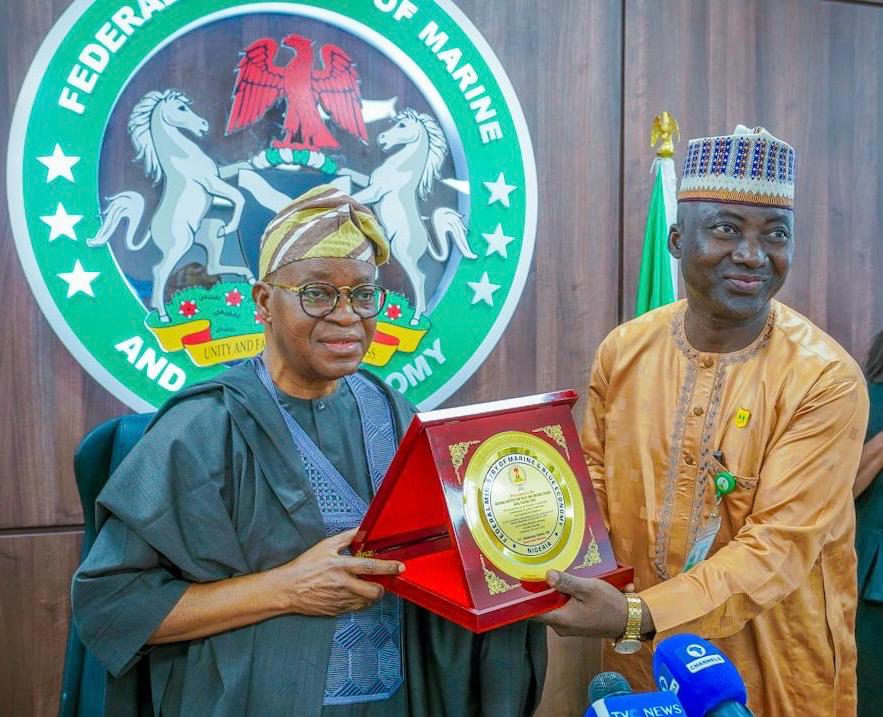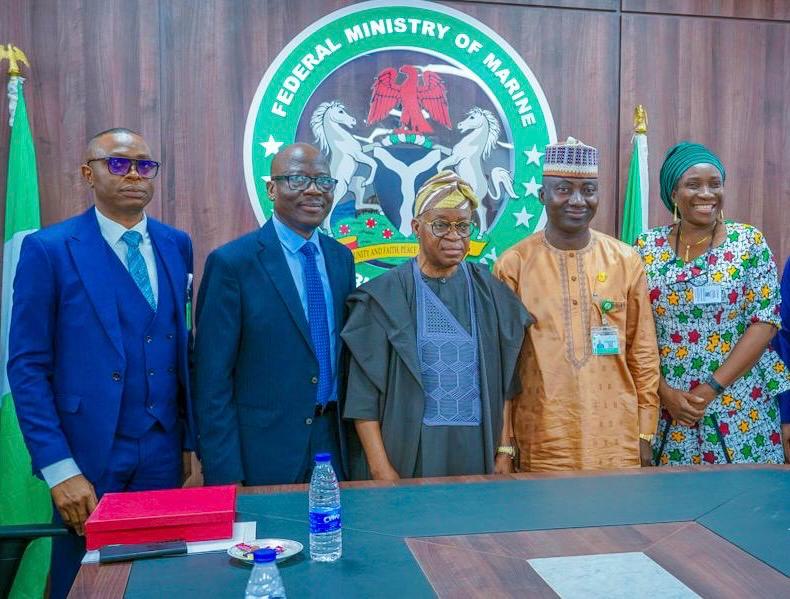
By Joshua Yousouph
The Minister of Marine and Blue Economy, Adegboyega Isiaka Oyetola has disclosed the high-stakes struggle that led to the resolution of the long-standing Apapa gridlock, a crisis that crippled port operations and hindered economic activity in Nigeria’s most critical maritime corridor for over two decades.
Addressing members of Study Group 4, Senior Executive Course 47 of the National Institute of Policy and Strategic Studies (NIPSS) during their study tour to the Ministry on Wednesday, Oyetola narrated how he had to confront entrenched interests and dismantle powerful syndicates that had profited from the dysfunction.
“The Apapa gridlock wasn’t natural — it was engineered. There were people who built careers and empires on the dysfunction of that corridor. Breaking that cycle meant taking on forces who didn’t want change,” he said.
According to the Minister, the battle to restore sanity to Apapa began shortly after he assumed office in 2023. While administrative inefficiencies and poor infrastructure were evident, Oyetola noted that the root cause was a network of collusion, corruption, and carefully sustained disorder.

“Clearing that gridlock meant going against years of collusion. We identified the patterns, unmasked the players, and took decisive action. It was gritty and risky, but it had to be done,” he stated.
A key turning point, Oyetola revealed, was in December 2023, when he formally requested intervention from the Minister of Works, Senator Dave Umahi, on the failed portions of the port access roads. The response was swift, allowing for necessary repairs that bolstered the Ministry’s broader reforms.
The Minister also acknowledged the Lagos State Government’s role in removing illegal structures and shanties along the corridor, further facilitating smooth port access.
With improved road infrastructure, the introduction of a digital truck scheduling system, and restored enforcement mechanisms, the Apapa gridlock—once synonymous with chaos—faded.
“For the first time in over 20 years, trucks no longer spent weeks waiting to pick up or deliver cargo. Port users now enjoy seamless movement, and haulage costs have dropped by as much as 60 percent,” Oyetola said.
He noted that the transformation has had a ripple effect: port activities are surging, residents enjoy cleaner environments, small businesses are returning, and national economic gains are being recorded.
“Too many lives were lost during those years of gridlock. People lost livelihoods, businesses closed, and property values collapsed. I am happy that we have restored hope and opened a new chapter,” he added.
Oyetola, however, emphasized that sustaining these gains requires continued vigilance, inter-agency collaboration, and firm leadership.
Brigadier General Abdulrahman Idris, who led the NIPSS Study Group, commended the Minister’s achievements and reaffirmed the importance of policy implementation in national development.
The resolution of the Apapa gridlock marks a landmark success in the administration’s maritime reforms and highlights what focused leadership and political will can achieve.















